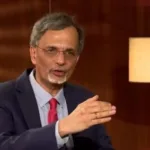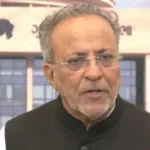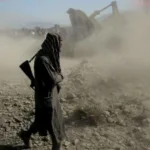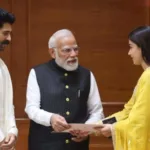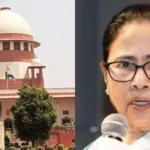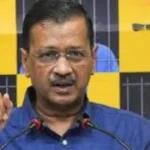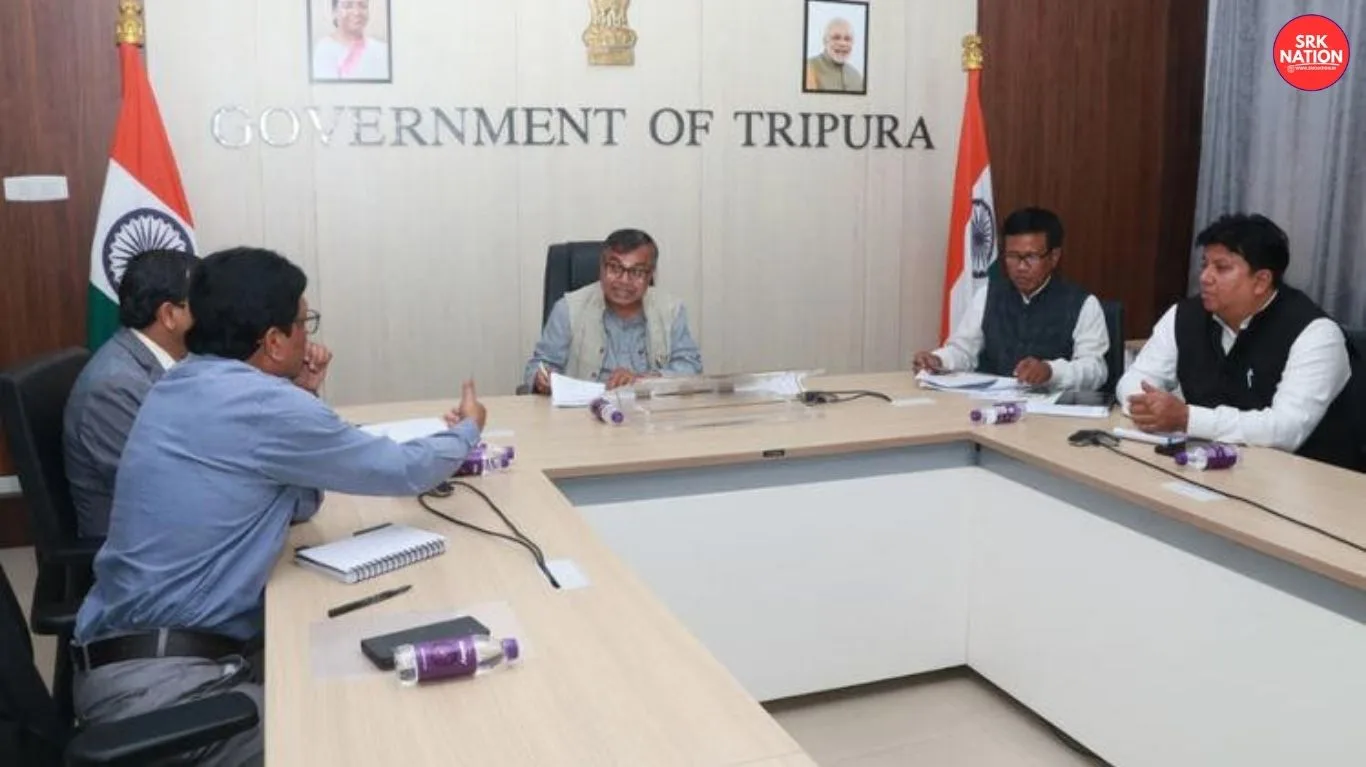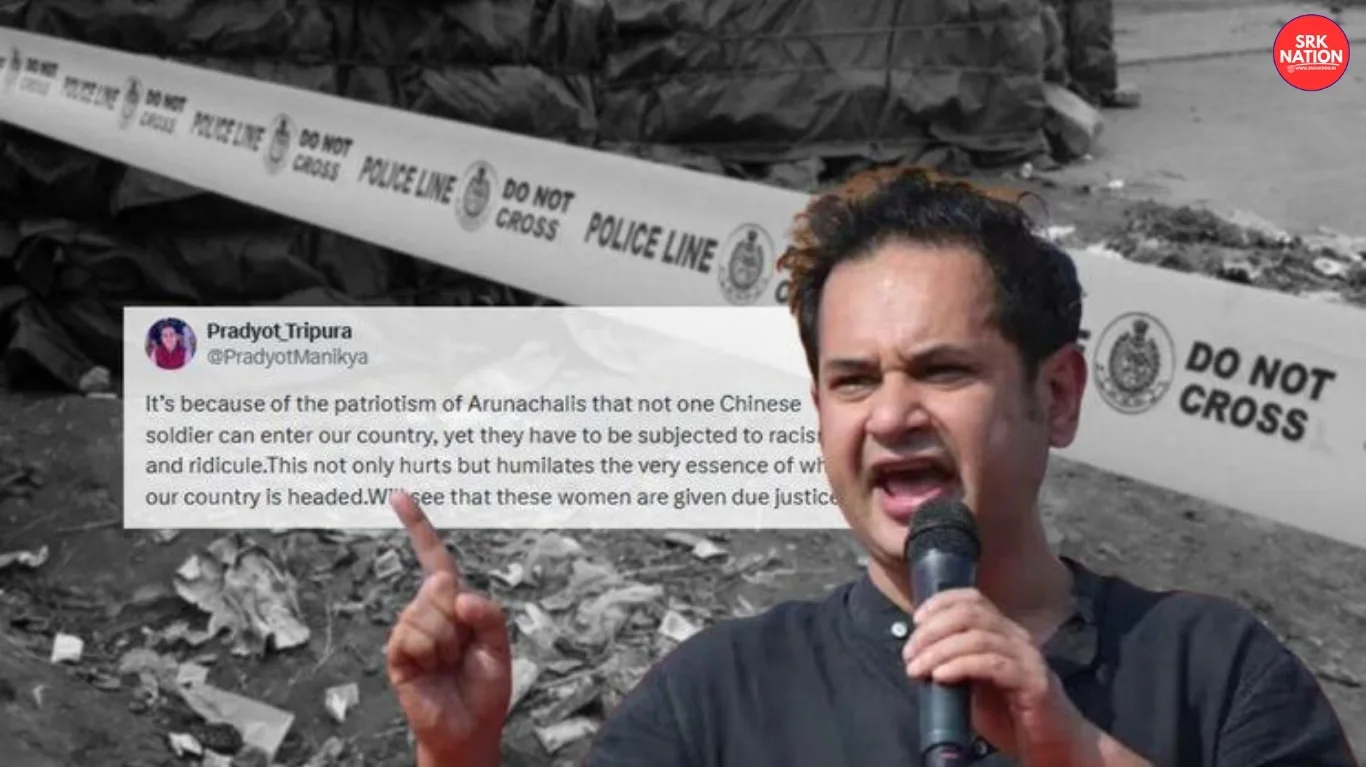In a powerful statement that reignited the ongoing debate on linguistic identity in Northeast India, Tipra Motha chief and royal scion Pradyot Bikram Manikya Debbarma strongly criticized the repeated labeling of the Bengali language as “Bangladeshi.” He called such references “deeply problematic, divisive, and rooted in ignorance,” while urging all political stakeholders and citizens to steer clear of linguistic discrimination that could stoke communal tensions.
The comments came days after social media platforms and certain political leaders in Tripura referred to Bengali as a “foreign” or “Bangladeshi” language in the context of local cultural identity and migration debates. Pradyot, who has often walked a fine line between advocating for indigenous rights and upholding secular democratic values, clarified that no language spoken within India — including Bengali — should be labeled as foreign or anti-national.
The Controversy: A Brewing Storm over Language Identity
Tensions have been simmering in Tripura over the past few years as conversations around land rights, demographics, and migration intertwine with linguistic identities. Bengali-speaking communities, which make up a significant portion of Tripura’s population, have increasingly faced slurs on social media and during political debates, being wrongfully associated with undocumented immigration from Bangladesh.
The most recent controversy erupted when a local tribal youth organization referred to Bengali as “Bangladeshi” in a rally held in Khumulwng, drawing widespread outrage. The group argued that “Bengali culture and language dominate and dilute indigenous traditions,” a view condemned by several human rights groups and civil society organizations.
Pradyot, speaking at a press conference in Agartala, took strong exception to this language-based targeting.
“To call Bengali a Bangladeshi language is a gross insult to millions of Indian citizens. Bengali is one of the most spoken and constitutionally recognized languages in India. Such remarks not only undermine national unity but also feed into an ecosystem of intolerance,” he said.
Bengali: A Rich Legacy within India’s Constitutional Framework
Bengali is not just spoken in Bangladesh, but is also one of India’s 22 scheduled languages under the Eighth Schedule of the Constitution. It is the mother tongue of nearly 100 million Indians, with a rich literary and cultural heritage that has contributed to India’s freedom struggle, cinema, arts, and politics.
| Key Facts About Bengali Language in India |
|---|
| Language Status: Constitutionally Recognized (Eighth Schedule) |
| No. of Speakers in India (Census 2011): 97.2 million |
| Major Indian States: West Bengal, Tripura, Assam, Jharkhand |
| Notable Figures: Rabindranath Tagore, Subhash Chandra Bose, Satyajit Ray |
| National Influence: Bengali literature, cinema, philosophy |
The Indian Constitution protects every citizen’s right to speak and preserve their language, making it unlawful to brand any Indian language as “foreign.”
Tripura’s Demographic Complexity
Tripura’s population is a microcosm of India’s diversity. The tribal communities — which include the Tripuri, Reang, Chakma, and Halam — form nearly 30% of the population, while Bengali-speaking Hindus and Muslims make up the remaining 70%.
| Ethnic Group | Population Share (%) | Primary Language |
|---|---|---|
| Tripuri (Kokborok speakers) | 18% | Kokborok |
| Reang & Other STs | 12% | Varied tribal languages |
| Bengali-speaking Hindus | 50% | Bengali |
| Bengali-speaking Muslims | 20% | Bengali |
The intermixing of cultures, especially since the post-Partition migration of Bengalis from East Pakistan (now Bangladesh), has given Tripura a unique syncretic identity — but also made it vulnerable to identity politics.
Pradyot’s Balancing Act Between Indigenous Rights and Unity
Pradyot, a key advocate of Greater Tipraland — a proposed homeland for indigenous communities — has repeatedly asserted that indigenous people must have constitutional safeguards and cultural autonomy. However, he has also been careful to clarify that his movement is not anti-Bengali.
“You cannot fight injustice by committing another injustice,” he said in the press briefing. “The demand for Tipraland is about rights, not hatred. We must never allow language or religion to divide us.”
This nuanced stand has earned him respect across community lines, even as fringe elements on both sides accuse him of being too soft or too radical depending on the context.
Political Reactions Across the Spectrum
The linguistic controversy has drawn reactions from national and regional parties alike.
- Trinamool Congress (TMC) condemned the branding of Bengali as foreign and said it reflects “a dangerous mindset aimed at alienating communities.”
- BJP leaders in the state maintained a cautious stance, emphasizing unity but avoiding strong criticism of tribal groups.
- CPI(M) leaders said that communal politics was deliberately being used to divide tribals and Bengalis for electoral gains.
Several political analysts believe this issue might be used in the run-up to the Tripura Assembly Elections 2028, with various parties trying to consolidate their respective voter bases.
Social Media Buzz and Public Outcry
Social media platforms have seen a surge in conversations with hashtags like #BengaliIsIndian, #StopLinguisticHate, and #TripuraUnity trending on X (formerly Twitter) and Facebook.
| Trending Hashtags | Engagement (Aug 1–4, 2025) |
|---|---|
| #BengaliIsIndian | 2.3 million impressions |
| #StopLinguisticHate | 1.8 million impressions |
| #PradyotSpeaks | 950K impressions |
| #TripuraUnity | 1.1 million impressions |
Activists, academics, and celebrities from across India have voiced support for the Bengali-speaking population, urging people to resist divisive narratives and protect India’s linguistic harmony.
Cultural Unity Amid Diversity
Despite political rhetoric, on the ground, many Tripuraites — tribal and non-tribal alike — continue to coexist peacefully. Festivals like Durga Puja, Garia Puja, and Biju see joint participation. Intermarriages are common in urban centers like Agartala, Udaipur, and Dharmanagar.
“This is not about Bengali versus tribal. This is about politicians poisoning minds. We celebrate each other’s culture here,” said Ranjit Reang, a teacher from Khowai.
Appeal for Constitutional Morality and National Unity
Constitutional experts have weighed in to remind the public that linguistic pluralism is enshrined in India’s democratic foundation. Branding an Indian language as foreign could be construed as hate speech under certain legal interpretations.
“Such rhetoric violates the spirit of the Preamble — Justice, Liberty, Equality, and Fraternity. The government must act before such speech becomes normalized,” said Dr. Anirban Sinha, constitutional scholar at JNU.
Looking Ahead: A Call for Dialogue
In his concluding remarks, Pradyot called for a statewide inter-community dialogue involving tribal elders, Bengali intellectuals, political leaders, and youth. He also offered to facilitate a “Language Harmony Summit” aimed at creating understanding and reaffirming shared values.
“We are all children of this soil. Let us not let words divide what centuries of coexistence have built,” he urged.
Disclaimer: This news content is based on publicly available information, interviews, and verified statements from press conferences. The article aims to inform and provide a balanced perspective on sensitive socio-political issues. Readers are advised to verify facts independently before forming conclusions.

